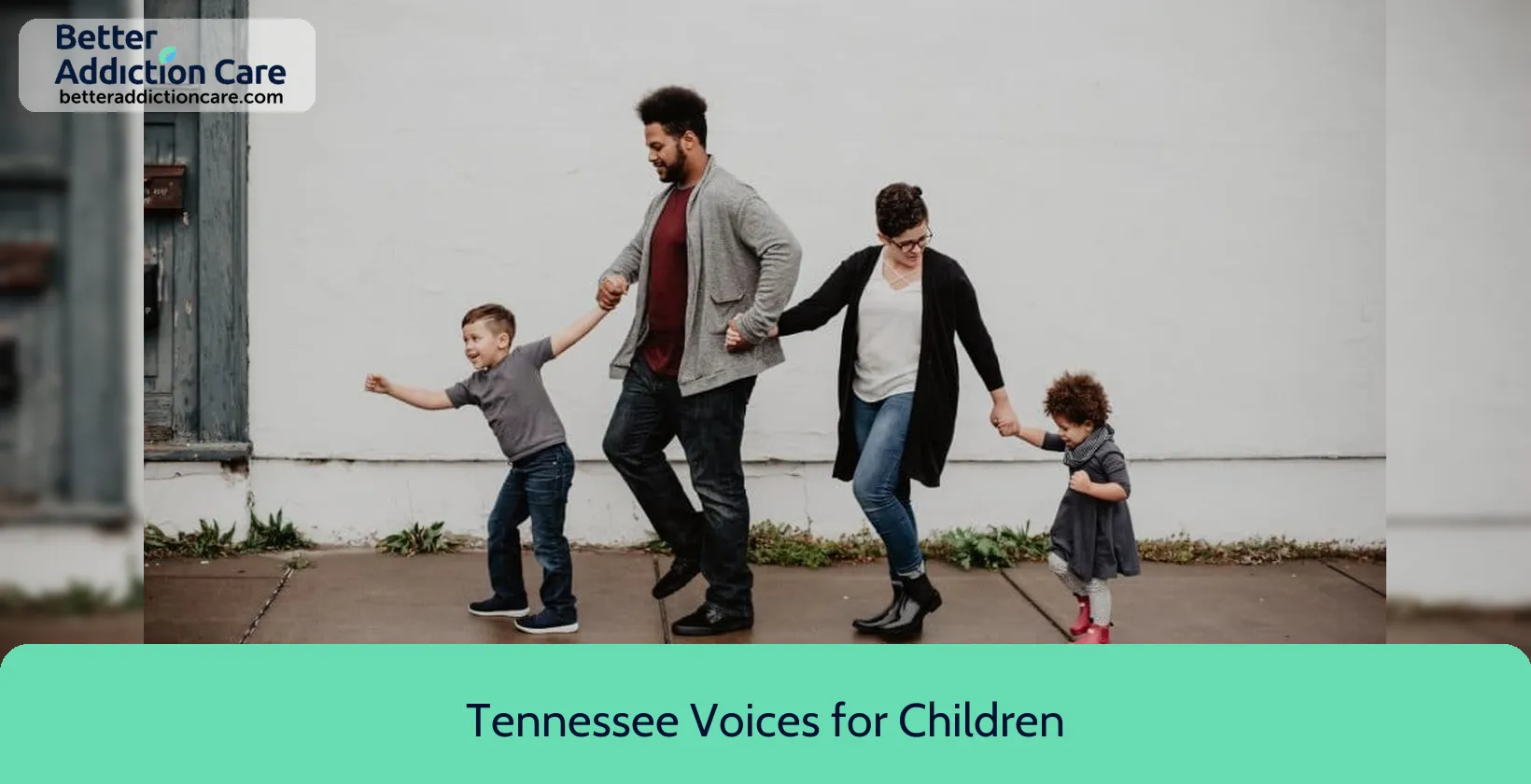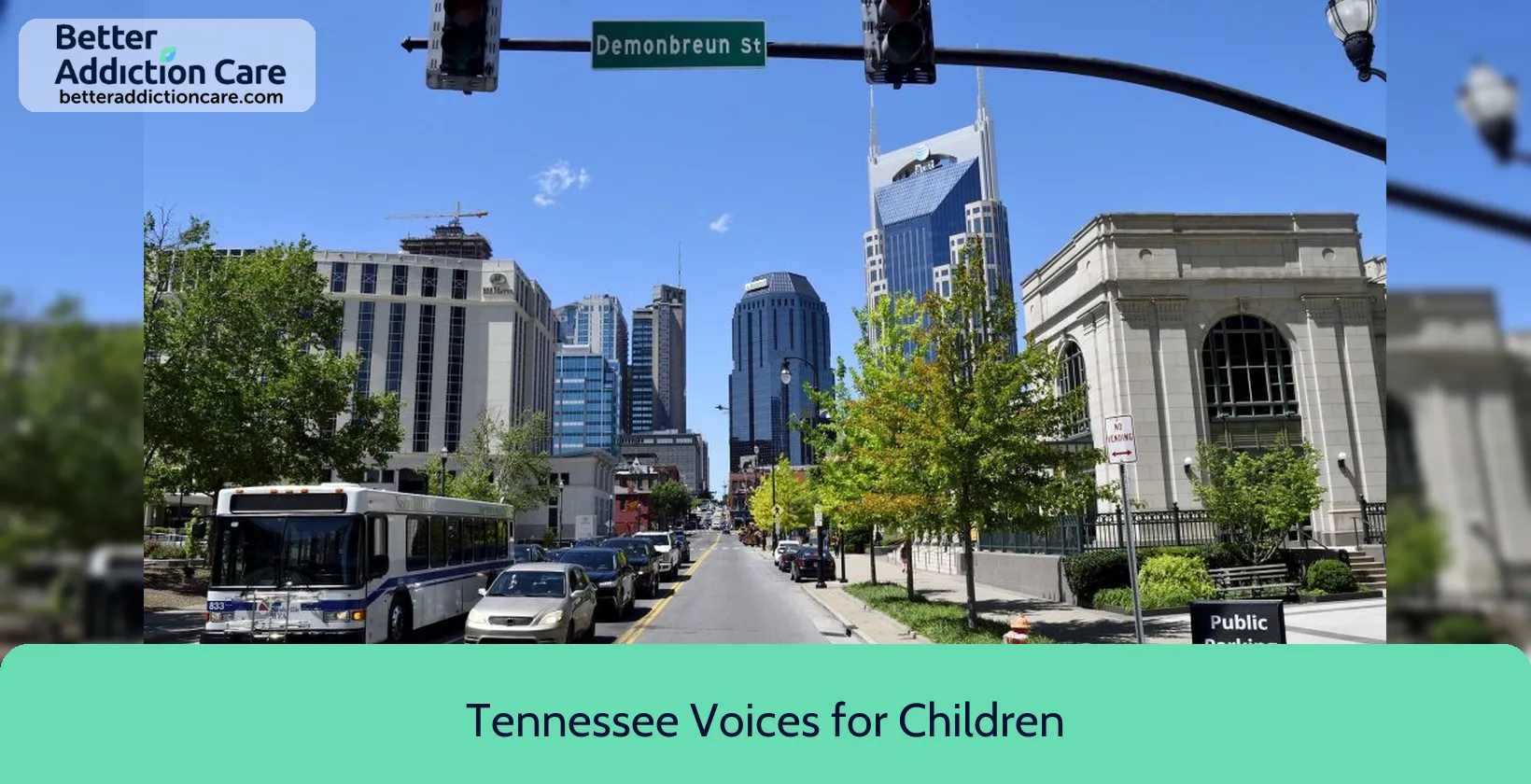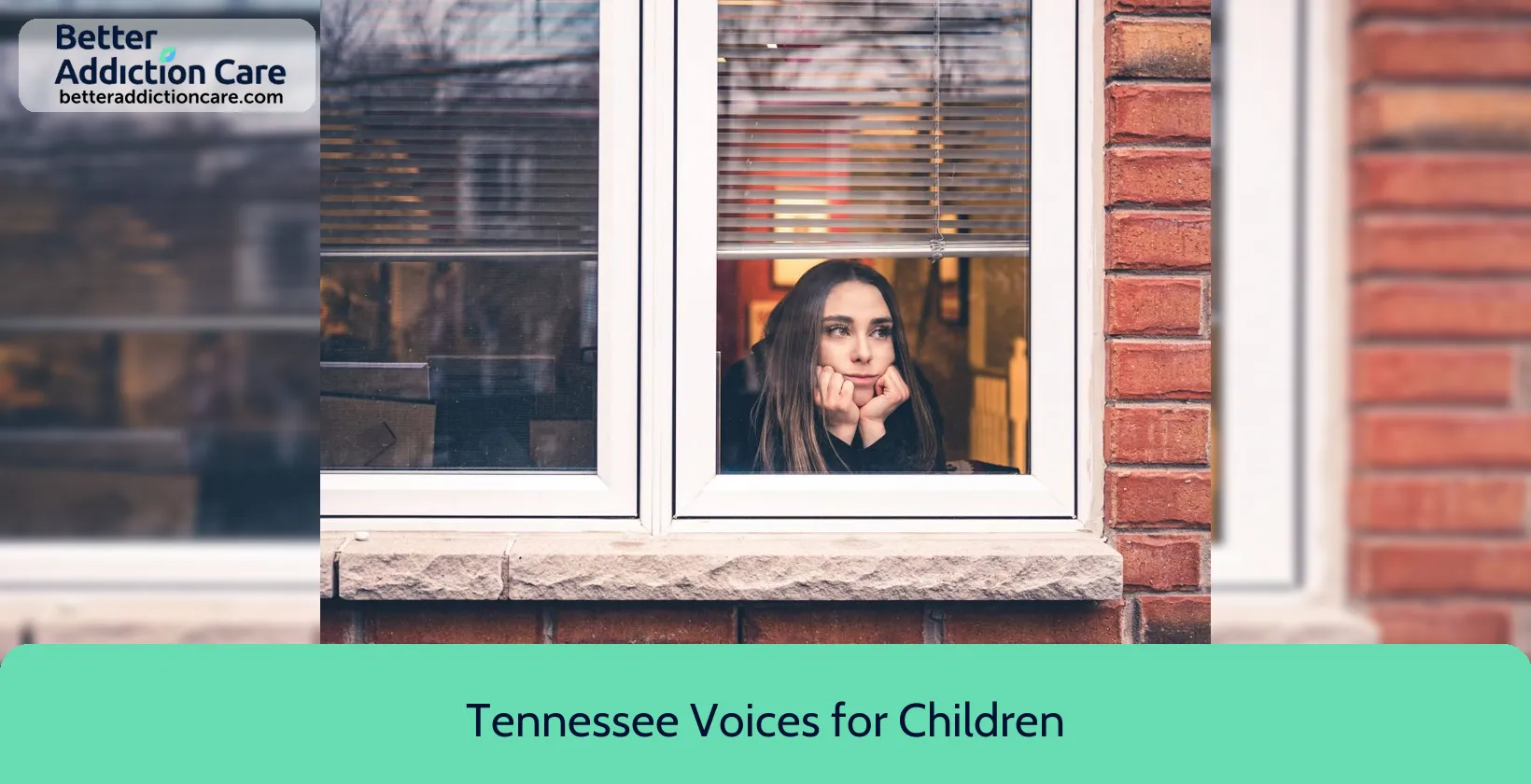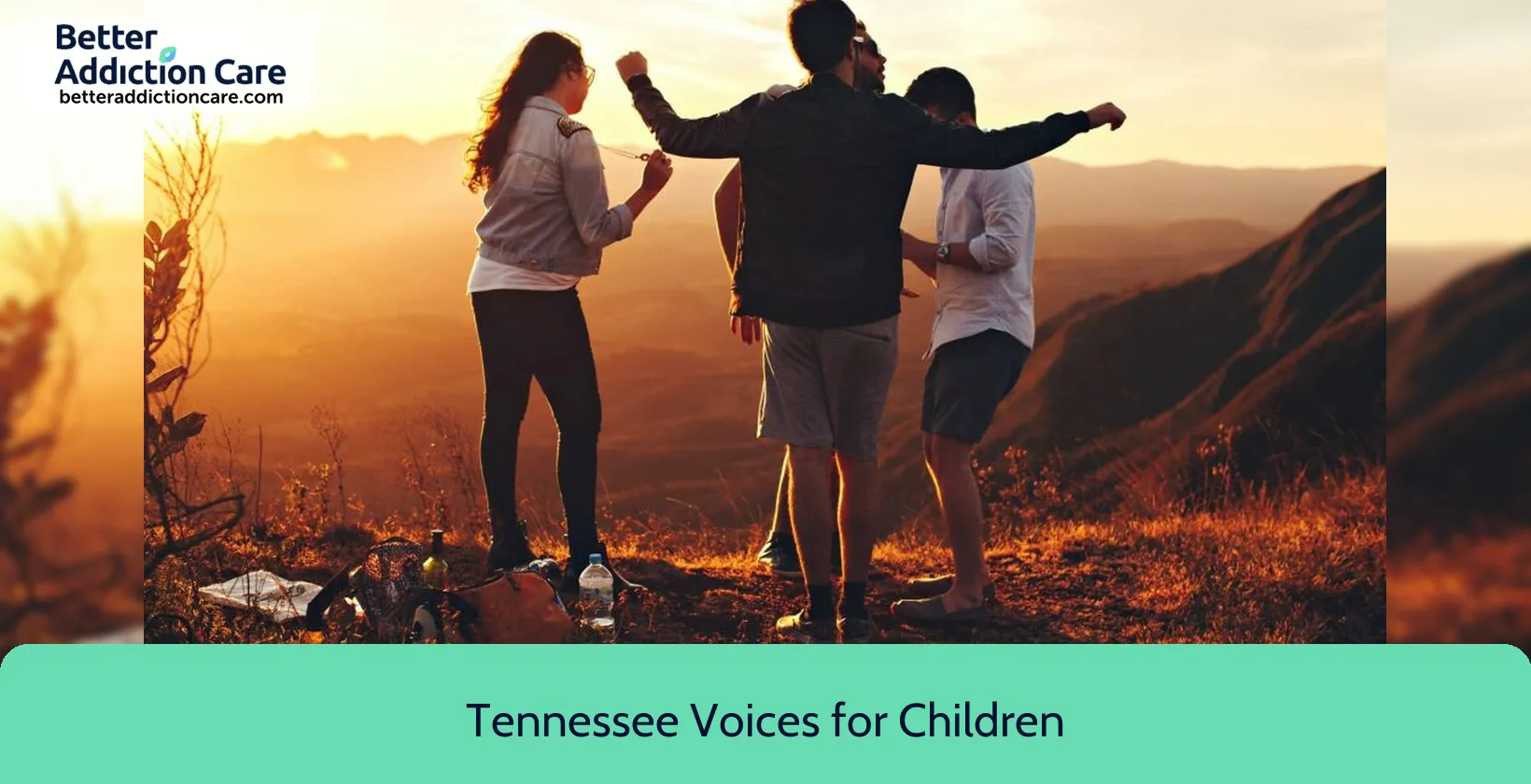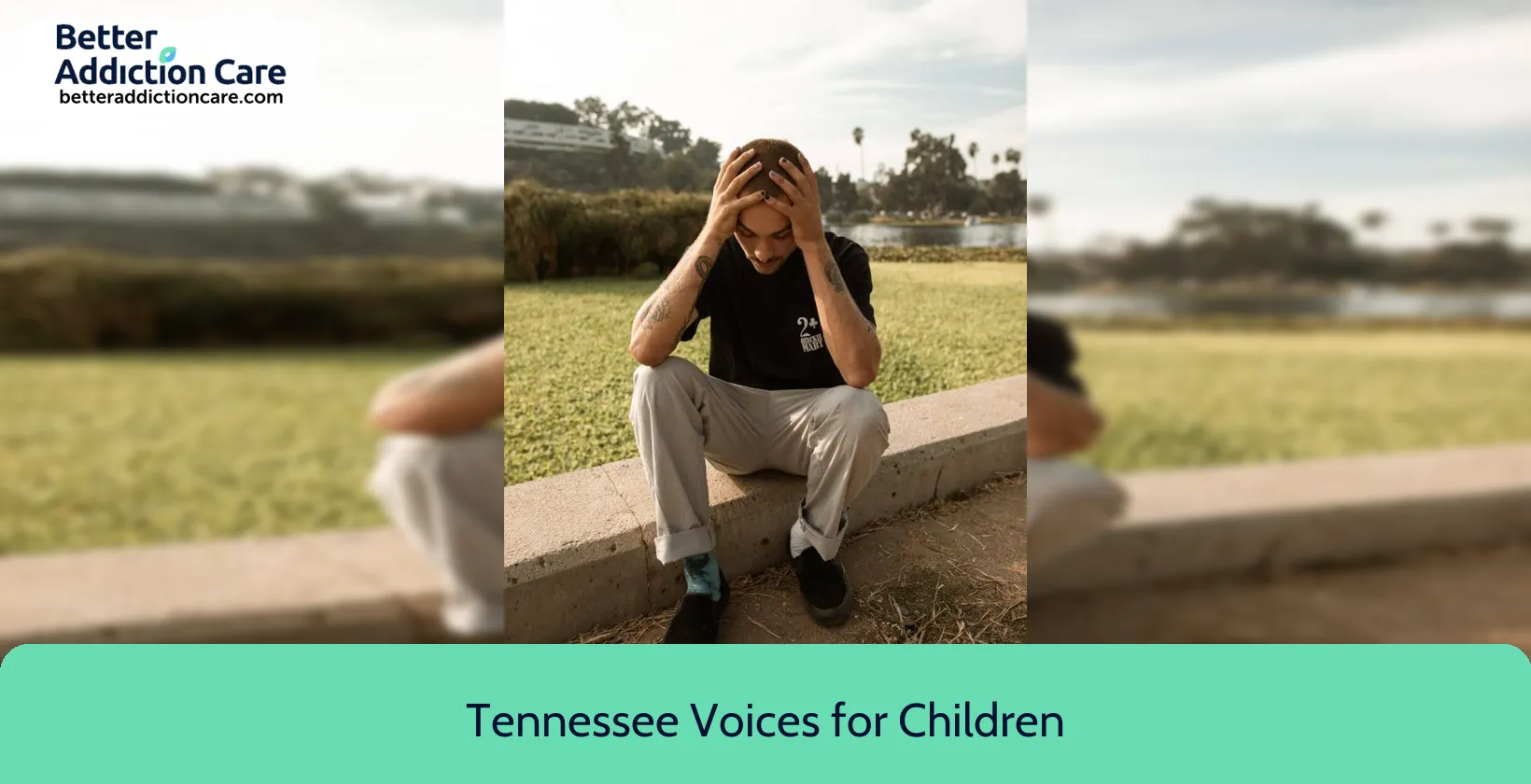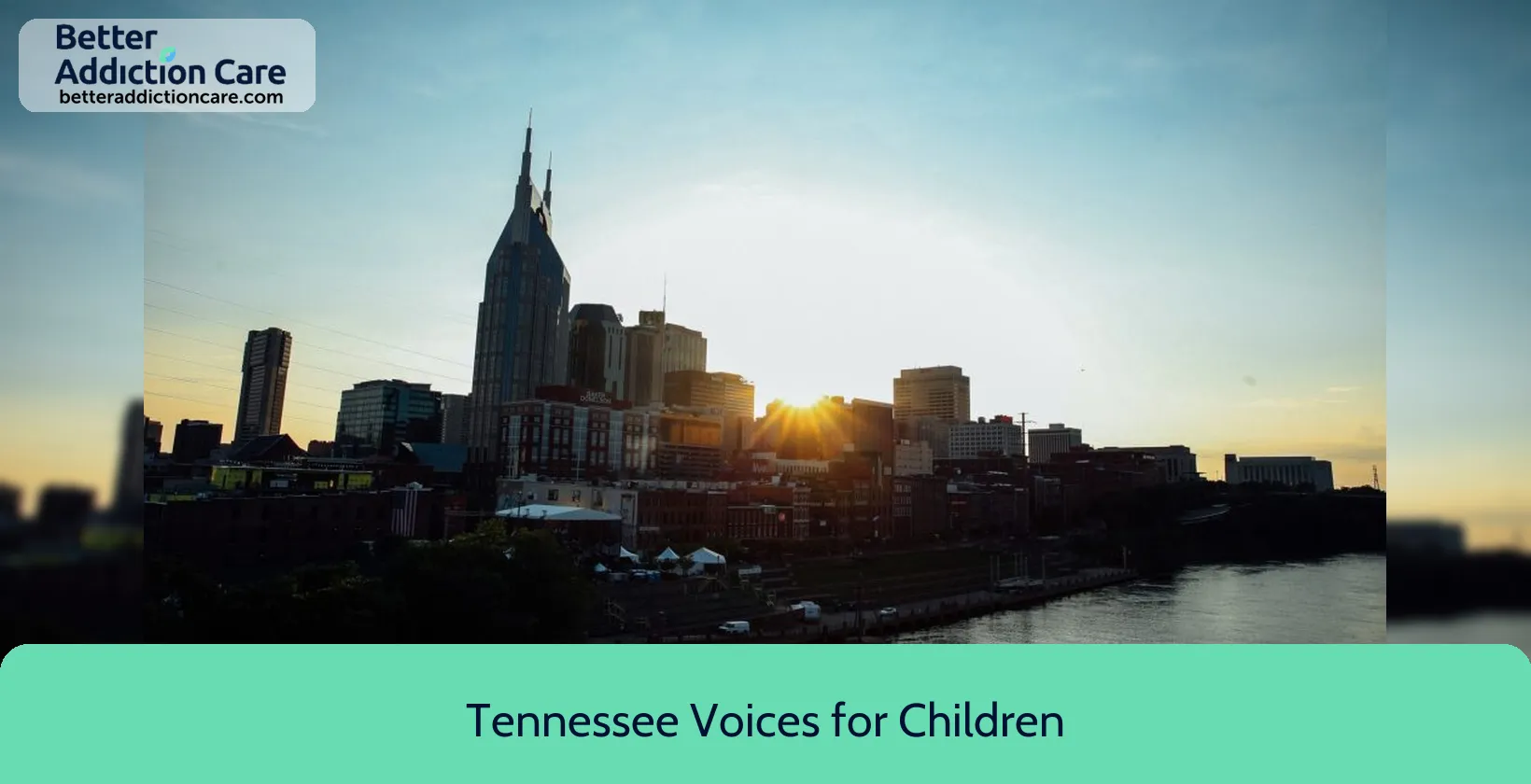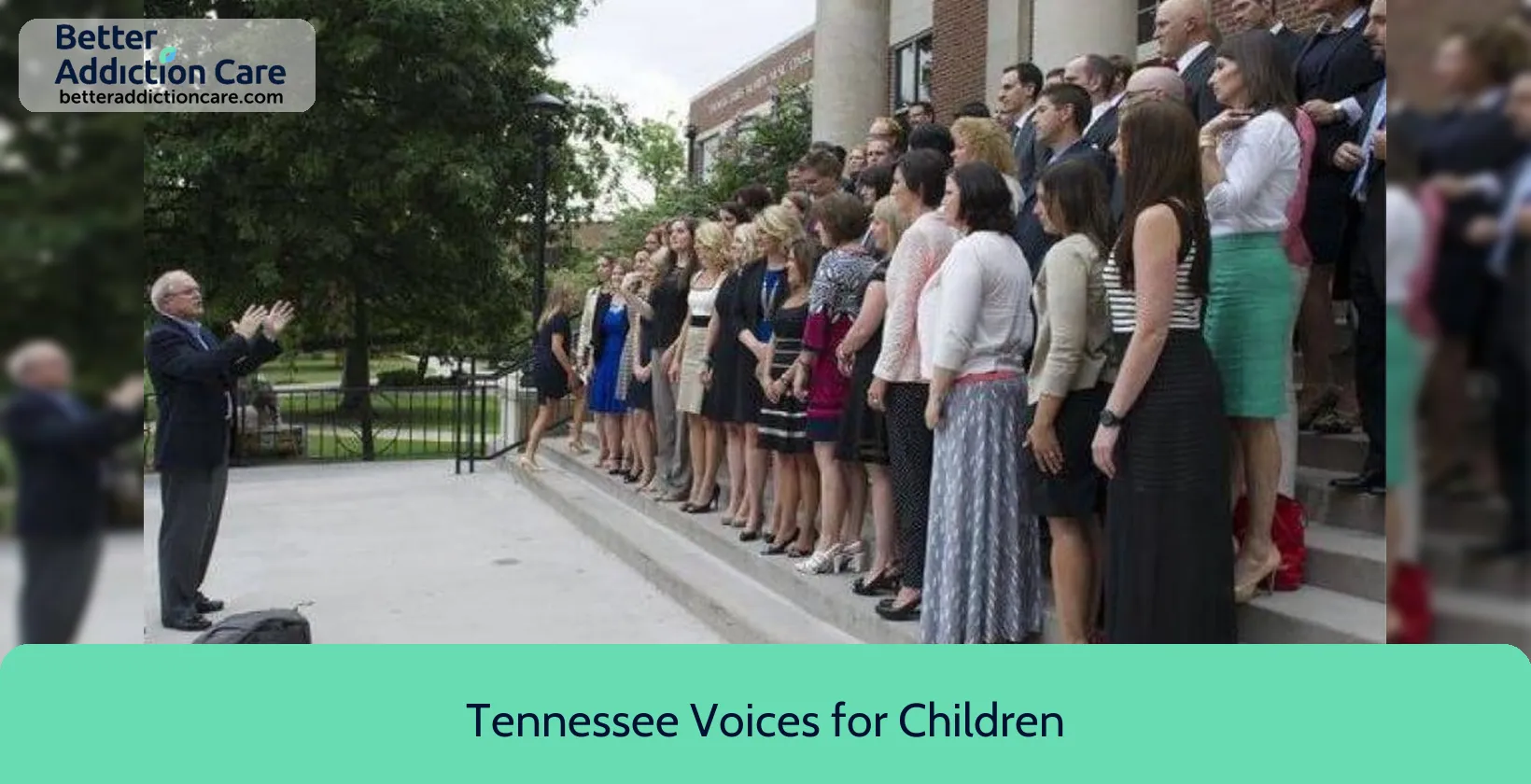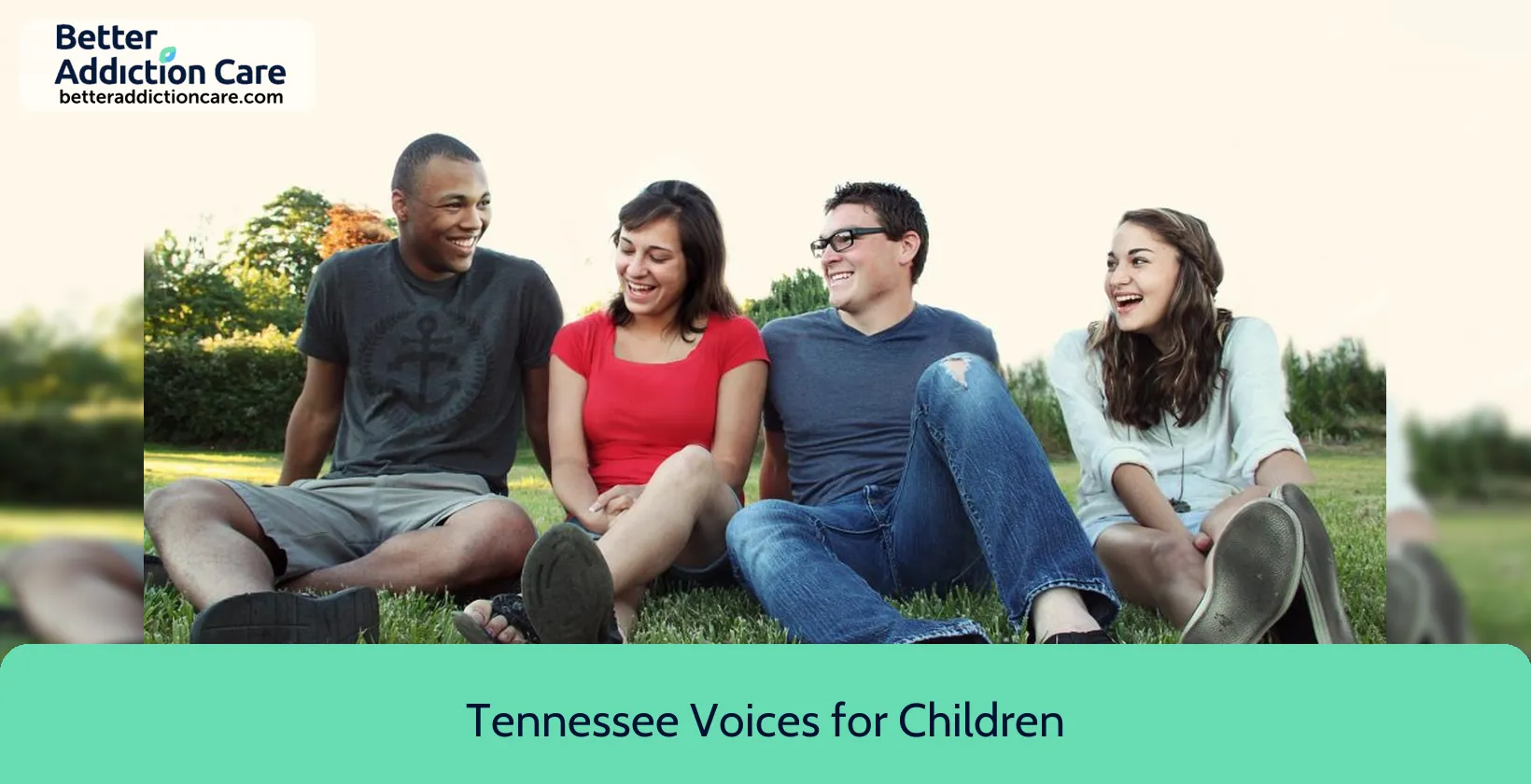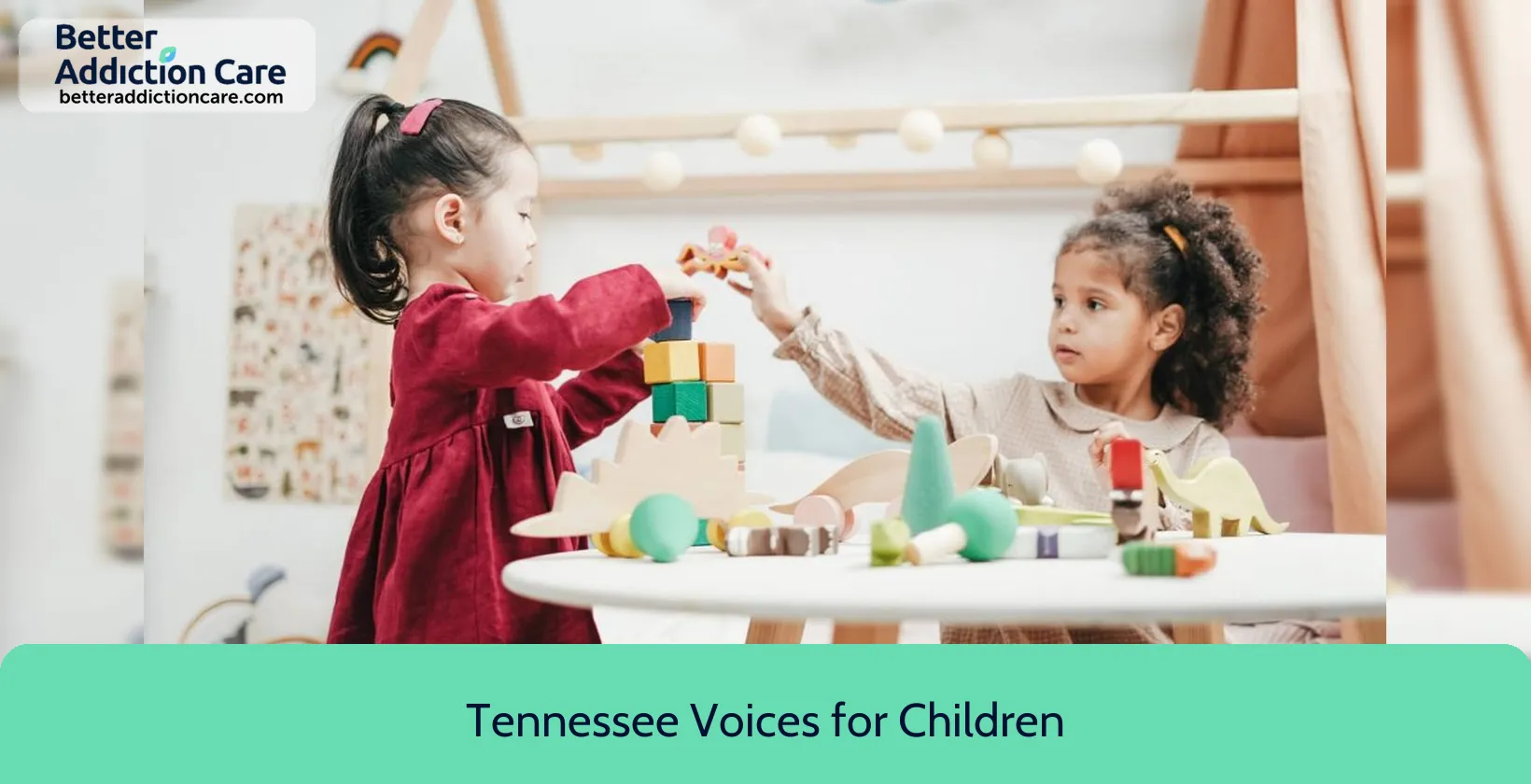Tennessee Voices for Children
Overview
Tennessee Voices for Children is a mental health treatment center for people seeking treatment near Davidson County. As part of their treatment modalities for recovery, Tennessee Voices for Children provides couples/family therapy, group counseling, and cognitive behavioral therapy during treatment. Tennessee Voices for Children is located in Goodlettsville, Tennessee, accepting cash or self-payment for treatment.
Tennessee Voices for Children at a Glance
Payment Options
- Cash or self-payment
- Medicaid
- State mental health agency (or equivalent) funds
- State welfare or child and family services funds
- Other State funds
Assessments
- Comprehensive mental health assessment
- Comprehensive substance use assessment
Age Groups
- Young adults
- Children/adolescents
- Adults
- Seniors
Ancillary Services
- Case management service
- Education services
- Family psychoeducation
- Suicide prevention services
- Supported housing
Treatment At Tennessee Voices for Children
Treatment Conditions
- Mental health treatment
- Substance use treatment
- Co-occurring Disorders
Care Levels
- Outpatient
Treatment Modalities
- Couples/family therapy
- Group counseling
- Cognitive behavioral therapy
- Telemedicine/telehealth therapy
Ancillary Services
Special Programs
- Criminal justice (other than DUI/DWI)/Forensic clients
- Clients who have experienced trauma
- Children/adolescents with serious emotional disturbance (SED)
- Persons 18 and older with serious mental illness (SMI)
Contact Information
Read our Most Recent Article About Drug Addiction
DISCLAIMER: The facility name, logo and brand are the property and registered trademarks of Tennessee Voices for Children, and are being used for identification and informational purposes only. Use of these names, logos and brands shall not imply endorsement. BetterAddictionCare.com is not affiliated with or sponsored by Tennessee Voices for Children.
Your Addiction Doesn't Have To Define Who You Are.
You deserve high-quality treatment and a fulfilling life in recovery.
By calling us, you agree to our Terms & Conditions
